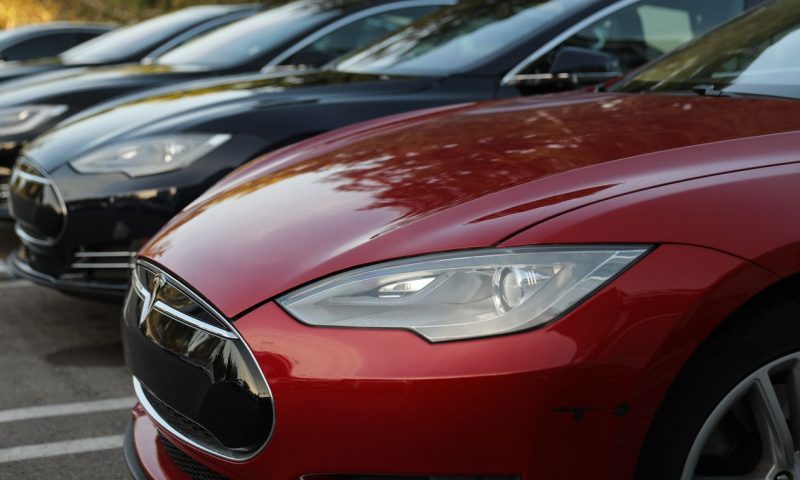Third bear market in a year for Tesla, though its stock is still way, way up over the past 12 months
Tesla Inc. shares fell Monday for a fifth straight session, part of a selloff that has knocked more than a quarter of a trillion dollars off the company’s market cap in a little more than a month.
Tesla stock TSLA, +19.64% has sunk 21% over the past five trading days, and is off 34% over the past month. Since peaking on Jan. 26 with a market cap around $850 billion, Tesla has lost around $277 billion in valuation.
Tesla has also entered its third bear market — defined as a drop of 20% or more from a recent high — in the past year, after steep selloffs in September and March 2020. Still, the electric-auto maker’s volatile shares are up more than 360% over the past 12 months.
Tech stocks in general have been hit hard in recent weeks, with the Nasdaq Composite COMP, +3.69% down 9% in the past month. Electric-vehicle companies in particular have fallen hard. Among Tesla’s rivals, Nio Inc. NIO, +17.44% has plunged 38% over the past month, while Nikola Corp. NKLA, +8.41% is down 38%, and Li Auto Inc. LI, +8.20% is off 30%.
One reason is a global chip shortage that has impacted auto makers’ supply lines. In February, Tesla briefly shut down its factory in Fremont, Calif., which CEO Elon Musk blamed on a “parts shortage.” CNet reported Monday that customers buying Model 3 and Model Y vehicles face a months-long backlog for delivery.
Rising interest rates have also taken a toll, as high-growth companies such as Tesla depend on future cash, which is devalued as rates rise. One estimate by Barron’s found that, as an admittedly simplified example, every 1% rise in interest rates hurts Tesla’s value by about $200 billion.
Tesla shares closed Monday at about $568 a share, below the $616 average target price by analysts tracked by FactSet.
ARK Investment founder Cathie Wood has said her firm will soon give a new price target for Tesla shares, but she said Monday she’s still bullish on the company.
“Our confidence in Tesla has gone up for a number of reasons,” Wood said in an interview on CNBC’s “Closing Bell,” citing Tesla’s market share and progress in autonomous driving.

